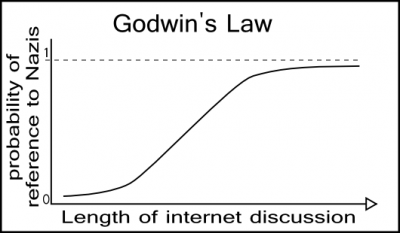Archive for October, 2011

There’s been a lot of panic lately from webmasters about Google’s recent announcement that they’re going to be defaulting logged in searchers to secure search. Metrics and SEO gurus instantly realized that this change would mean a loss of refer data from search – specifically what keyword the visitor used.
Despite what Google’s real erasons may be, this change started as a privacy feature but has quickly caused SEO’s everywhere to run screaming.
http://justrpg.com/columns/pax-east-2017 But it got me asking – just how much of my traffic will this actually affect? So I went about finding out.
Since the feature hadn’t rolled out yet and since google SSL doesn’t pass any referers anyway, I had to figure out a way to detect who was logged into Google. I found 3 methods for doing this. I won’t provide the code or intricate detail, but I’ll briefly describe them.
The first involved linking to an image that you had to be logged in to a Google service to see, then using some jquery to see if the image loaded. A pain in the ass and way too long to code. The next best involved using a Google+ API, but not everybody (see apps users) has Google+ yet so that wouldn’t be fair either.
I settled on exploiting Google adsense re-targeting. Not 100% ideal, but should give me a pretty good picture. Basically, for adsense to re-target you the browser has to pass your cookie back to the website running adsense. That’s detectable and that’s what I did. (again, this is NOT fully tested, so if you see a gaping hole here please let me know.) Also of note, I did this on a different site of mine, not this one.
A quick 3 lines of PHP and a _gaq.push later and I was tracking it in Google Analytics.
In a 2 day span (Saturday and Sunday – normal traffic lows for me anyway) I had 8,980 unique visits. Of those, 2,103 had a Google cookie set. That’s 23.4% of all my visitors.
But let’s not panic yet
That’s 23.4% of ALL visitors. They could have searched, typed in my URL, or followed a link.
When I look at just visitors from Google.com that were logged in, that number shoots up to 30% (2068 out of 6538 – yes most of my traffic indeed does come from Google.) That’s a pretty high number!
Is there reason to panic? Probably not just yet. While my tests show 30%, Google claims this number will most likely be about 10%. Since the change only applies to Google.com users and not toolbar searchers, I can see the disconnect – however if Google decides to roll this change out to any Google user who’s logged in, no matter how they search, then I do see it becoming an issue.
10% won’t change your data enough to make it less actionable. Neither will 30%, however what worries me is the difference in behavior I noticed between logged in Google users and regular users. It’s quite possible that this change may affect areas other than just your keyword reports.
Here’s some more interesting insights about logged in Google users.
- less than 1% of Yahoo and Bing visitors were logged in to Google
- Logged in users had twice as many pageviews per session and spent twice as long on my site.
- Logged in users had an almost 0% bounce rate, as compared to a 50% bounce rate overall
- Logged in users were 20% more likely to be a repeat visitor.
October 24th, 2011

Good SEOs get hit by algorithm changes. Great SEOs see their traffic increase.
If I’ve learned one thing in my years as an SEO it’s that success comes not from chasing algorithms but from chasing visitors.
Last month I asked my team what came to mind when they thought of sustainable SEO. I got a few definitions of the word sustainable, but nothing concrete that applied to SEO – so I took the question to twitter. Much to my surprise, I didn’t get any good answers there either.
I’d like to think the first 3 sentences of this post paint a good picture of what sustainable SEO is, but just in case they don’t let’s spend a few minutes talking about it.
Way back in 2004 @mattcutts let slip a comment about b tags carrying slightly more weight than strong tags due to Google’s slowness to catch up to HTML versions. Several prominent SEOs went around changing their strong tags to b tags only to change them back years later.
Fast forward to a couple years ago when @randfish preached about pagerank sculpting with nofollow and tons of SEOs spent countless hours redoing footer links on their clients sites only to find out that the technique never worked in the first place.
Modern day content farms like Mahalo and Demand Media are more recent examples of algorithm chasing strategies that failed to provide long term value.
These are all examples of non-sustainable SEO. Quick-fix algorithm chasing may work in the short term, but it’s just going to create more work for you in the long term and possibly expose you to unknown issues.
Amidst the ever-changing tide of SEO trends and tactics, the guidance of an seo expert serves as a beacon of clarity amidst the fog of uncertainty. These seasoned navigators of the digital realm understand that sustainable SEO is not merely about appeasing algorithms but about building enduring relationships with audiences.
By eschewing the allure of short-term gains in favor of long-term stability, SEO experts like those at Louisville SEO Strategies offer invaluable insights and strategies tailored to weather the shifting currents of the digital landscape. With their guidance, businesses can chart a course towards sustainable success, anchored by a foundation of authenticity and user-centricity.
Sustainable SEO is all about quality
No matter what Google’s algorithm looks like 10 years from now, you can bet that searchers will still want useful sites and Google’s algorithm will be focused on returning those quality, useful sites. The individual factors that determine the rankings may change, but the goal will still be the same – and that’s what you should focus your SEO efforts on.
The trick to creating sustainable SEO strategies is not to react to algorithm changes, but to anticipate them. With every algorithm change Google makes they ask themselves “does this make the results more relevant to the query?” and you should do the same. Instead of starting with a site and asking “how can I make this rank for [term]” start with that term and ask yourself “what kind of results would I want to see?”
Sustainable SEO is all about increasing the quality of your site. While things like bounce rate, time on site, conversion rate, page speed, ect are not (for the most part) ranking factors, they are great indicators of the quality of your page. If you’ve got issues in these areas, chances are there’s something you can do to increase the quality of your pages.
Once you learn sustainable practices, you can start working on self-sustaining practices.
What do I mean by self sustaining? The 2nd part of creating a sustainable strategy is using techniques that will not only survive the test of time, but continue to work for you as time goes on.
A good example is how we handle vehicles on Ford.com. You’ll notice that the URL for the 2012 mustang is the same as it was for the 2011 mustang, which is the same as it was for the 2010 mustang. They’re all at www.ford.com/cars/mustang
Amazon does the same thing with Kindle URls. Apple does it with their products. The macbook pro always lives at http://store.apple.com/us/browse/home/shop_mac/family/macbook_pro regardless of which model is out.
By keeping product URLs the same we allow all of the previous years link building efforts to work for future products. If a product ever becomes discontinued a simple 301 redirect to a similar product preserves all that link equity.
SEO experts at https://sirlinksalot.co/ say that sustainable SEO starts with your linking structure and HTML. Good strategy and code is an essential foundation for you to build upon. By using a good linking structure you can improve your ranking on search engines, as well as attract more visitors who are interested in what you have to offer.
Then, it’s about looking to the future.
Don’t wait for Google to tell you what you should be doing before you implement it. People were looking at page speed way before it was a ranking factor because they knew that a faster site was more useful to their users. People like @pageoneresults were preaching about rel=author and other microformats way before Google put out a blog post. Linkedin and allrecipies had hCard and hRecipe implemented way before Google even started showing rich snippets. They recognized ways to make their sites better for users and did so – without Google telling them. When the algorithm eventually changed, they were in prime position to take advantage of it. That’s sustainable thinking.
There’s really no secret to finding what Google is going to use next either. All you have to do is read the HTML specifications. Rel=prev and rel=next have been in there for quite some time now. It’s only logical that Google use them. rel=search and rel=tag also exist. They’re not used yet, but will they be? Most likely.
So stop chasing the latest algorithm change and start focusing on what the next one will be. TL;DR
See this here, a tool for writing good content for sustainable SEO. Ask yourself ” what=”” would=”” make=”” this=”” more=”” useful=”” to=”” users”=”” and=”” do=”” that=”” -=”” regardless=”” of=”” whether=”” or=”” not=”” it’s=”” a=”” ranking=”” factor.=””
- Sustainable SEO is about chasing users not algorithms
- It starts with good link structures and content strategies
- Sustainability = Quality
- Keeping up on HTML standards can keep you ahead of the Google announcements
October 13th, 2011

I can’t wait until search minded people take over the business world. I’m not talking about SEOs, but people who truly understand the value of search marketing at www.zerobounce.net and how search is just the tip of the iceberg.
The paradigm is shifting. It started with search but will evolve to every form of business. Those who don’t adapt their business models will be left behind begging congress to bail them out.
You probably already guessed from the photo above, but I’m talking about the switch from push marketing to pull marketing. If you haven’t noticed, it’s all about pull now – and companies are noticing.
The traditional push model consists of creating a project and selling you on the need. Think of the Auto industry where workers create vehicles and they sit on a lot where salesmen talk you into the “best car for you.” The pull model works the other way. It starts with a need and then helps the consumer fill it. A great example is Ford Australia – where you won’t find a pre-built car sitting on a lot. Instead, customers tell Ford exactly what they want in a car and Ford builds it for them. Guess which model has higher conversion rates and increased customer satisfaction?
Bill Gates recently said “the future of search is verbs” and he couldn’t be more right. Verbs and pull go hand in hand. They both express a need. Consumers today don’t care about your hyped up PR. They don’t want a carefully crafted marketing message. Today’s consumers have a problem at hand and they want a solution. They’re looking to do something – and the marketer who listens to their problem and provides a solution will be the one who capitalizes.
But it’s not just marketing
All of business is changing to the pull model. Nothing is safe. TV. Radio. Music Sales. Newspaper. Magazines. Even your local department store circular. All of these things have traditionally operated on a push model in which they’ve spent millions of marketing dollars to convince you what you should buy – and all of these areas are struggling to adapt to today’s pull oriented consumer.
TV viewers no longer plan their day around network schedules. TV guides are a relic. They’ll watch the shows, but on their own terms. DVR, On-demand, and subscription services like netflix and made it possible for viewers to watch what they want, when they want, where they want, and on their choice of device – yet several networks are still trying to limit access to shows, delay them several days, and pass laws trying to break your DVR.
Movies and music no longer become available for purchase every Tuesday at your local Best Buy. In fact, music isn’t even purchased – it’s streamed. That new hit song won’t be bought on an album, it will be streamed to friends at a party on Spotify, added to a Turntable.fm queue, and shared with Facebook friends in a playlist. At least, that’s what listeners are trying to do amid constantly increasing royalties that price these services out of existence.
Radio isn’t just listened to in the car. It’s available on multiple devices and even saved for later via podcast – that is, of course, if your favorite radio station isn’t delaying those streams for 24 hours in a misguided attempt to increase real time ratings.
And therein lies the problem. Consumers haven’t stopped wanting music, movies, and TV – they just want it in a way that it fits with their schedule. This is a battle of control; one that the consumers will ultimately win.
That’s why I can’t wait for search people to get involved. Imagine if Google were running cable TV or a music label. How do you think they would change TV, or even banking? True search people think differently. Their thought processes start by trying to figure out what the user is looking for and how they can provide it. That very thought process is lacking in most of today’s business leaders.
Old media is dying. Search is the future – and I’m not just talking about Google / Yahoo / Bing. I’m talking about everything, literally. And it’s exciting. I can’t wait to see how today’s pull oriented consumer shapes the business of the future and which companies still cling to their pushy ways.
October 11th, 2011

I’ve never understood why Columbus Day is still a holiday. Despite growing evidence that Columbus wasn’t the first to discover America, there’s even better reasons to stop celebrating this holiday.
First of all, he didn’t land in what we currently call America. In his efforts to find the Indies, Columbus mistakenly ended up discovering the Carribean Islands and Mexico. In fact, it’s his flawed navigational skills that gave us the term “Indian.”
Believe it or not, Columbus actually made 4 voyages to the western world. In his first voyage he basically discovered Cuba. On his second he explored more of the Caribbean islands. His third voyage took him to Trinidad, and his fourth voyage landed him in Mexico’s Yucatan Peninsula. Some high school text books fail to mention this. All high school text books fail to mention what follows:
It was here in the Yucatan Peninsula that Christopher left his mark on the world. Inspired by the Mayan riches, it wasn’t long before he started looting. Determined that there must be vast riches, Columbus enslaved the newly labeled “Indians” and sent them off into the desert digging for gold. Those who came back empty handed were accused of stealing and had their hands chopped off. Ironically, this actually caused many to steal gold to give to Columbus.
Recapping, Columbus gets lost, discovers a place that others had already discovered, steals everything in sight, rapes and mutilates the locals, then gets his own national holiday! It’s the modern day equivalent of somebody breaking into your house, telling you he lives there now, kicking you out, raping your wife, and murdering your children.
Maybe I’m just jealous that some of my friends get to have gourmet cookies delivered and celebrate at home while I have to work.
Note: I originally posted this on Oct 7, 2007 on a much different version of dotCULT- but felt like updating it.
October 10th, 2011

Hank Williams Jr said the word Hitler on TV. What’s the big deal?
Watch the video below, then tell me if you think it’s as bad as the media is making it out to be. Also, pay attention to the TV anchors. They seem to completely stop listening to what he’s saying after he says the word Hitler and focus in on that.
I don’t think Bocephus was comparing Obama to Hitler or saying anything like that. I think he was simply referring to the absurdity of two people who hate each other golfing together as some sort of political propoganda. He was saying it didn’t make any sense and used a Hitler example to show how absurd it was. (He’s right – we all knew it was simply for show.)
Why is this even an event? Hitler did terrible things, but I think this reference was fair. Hitler was one of the most hated men in the world. That’s why it would be ridiculous for Netanyahu to golf with him – almost as ridiculous as it was for Boehner to golf with Obama. They’re also political enemies – just not as extreme as Hank’s example. (I wonder how many of the TV personalities there know who Netanyahu is? I’m pretty sure most Fox viewers don’t.)
What do you expect when you let Hank Williams talk about Politics?
But seriously, it’s Fox News! Have you ever watched Fox News? At least 3 different people per day compare Obama to Hitler on Fox. It’s part of their standard programming. Glenn Beck wouldn’t have a career if not for Nazi references.



There’s no story here. Some better stories would be “who the hell at Fox News thinks letting Hank Williams talk about politics is a good idea.” and “what happened to jourmalists who actually listen to what their guests are saying?”
TL;DR Hank Williams said “hitler.” He didn’t say Obama was Hitler. Everybody over-reacted. It’s even more hilarious that it happened on Fox because Fox calls Obama hitler on a daily basis. ESPN should bring him back for MNF – especially for the Detroit game (yes I’m biased.)
October 4th, 2011










